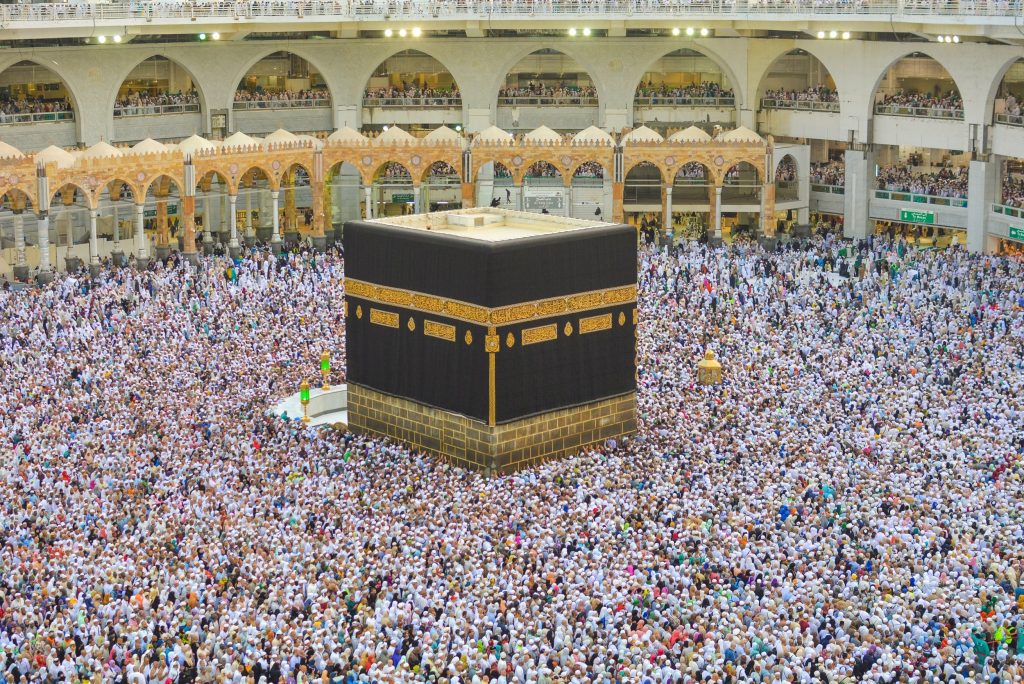INDEED ALL PRAISE AND THANKS ARE DUE TO ALLAH, WE PRAISE HIM, WE SEEK HIS ASSISTANCE, WE SEEK HIS FORGIVENESS, WE SEEK HIS GUIDANCE.
“Indeed, the number of months with Allah is twelve [lunar] months in the register of Allah [from] the day He created the heavens and the earth; of these, four are sacred. That is the correct religion, so do not wrong yourselves during them. And fight against the disbelievers collectively as they fight against you collectively. And know that Allah is with the righteous [who fear Him] ”
— Surah at-Tawbah: 36
Bukhari extracted on the authority of Abu Bakrah that the Prophet (ﷺ) said:
“The division of time has turned to its original form which was current when Allah created the Heavens and the Earths. The year is of twelve months, out of which four months are sacred: Three are in succession Dhul-Qa’dah, Dhul-Hijjah and Muharram, and Rajab of Mudar which comes between Jumada ath-Thaniyah and Sha’ban.”
The month of Dhul-Hijjah that is approaching us is a very sacred month. It is from the four sacred months in the Islamic year. It is the month about which verse have been revealed:
“By dawn, and the ten nights”
— Surah al-Fajr: 1-2
The scholars have interpreted this to mean the first ten days of Dhul-Hijjah, the most holy of days in the Islamic year. Bukhari narrates on the authority of Abdullah b. Abbas that the Prophet (ﷺ) said:
“No good deeds done on other days are superior to those done on these.” Then some companions of the Prophet (saw) said, “Not even Jihad?” He replied, “Not even Jihad, except that of a man who does it by putting himself and his property in danger and does not return with any of those things.”
Therefore in this blessed and holy month, one should increase in his righteous actions. He should stand in the day and in the night, beseeching his Lord for forgiveness and for His Gardens. He should fast as much as he can, and if he cannot fast the ten days, then he should fast on the Day of ‘Arafah, because the Prophet (ﷺ) said,
“There is no day when God sets free more servants from Hell than the Day of ‘Arafa. He draws near, then praises them to the angels, saying: What do they want?”
One should increase in the remembrance of Allah (swt), by reciting and pondering over His Book. One should give as much charity as he is able to and if he can should slaughter an animal. One should thank His Lord and remember Him much.
“There are no days greater in the sight of Allah, or in which good deeds are more beloved to Him than these 10 days. So recite a great deal of tahlīl (لَا إِلَٰهَ إِلَّا ٱللَّٰهُ), takbīr (اللّٰهُ أَكْبَر), taḥmīd (ٱلْحَمْدُ لِلَّٰهِ).”
— Ahmad
WHAT TO AVOID DURING THESE TEN DAYS IF ONE WANTS TO OFFER A SACRIFICE?
The Sunnah indicates that the one who wants to offer a sacrifice must stop cutting his hair and nails and removing anything from his skin, from the beginning of the ten days until after he has offered his sacrifice because the Prophet (ﷺ) said:
“When you see the new moon of Dhul-Hijjah, if any one of you wants to offer a sacrifice, then he should stop cutting his hair and nails until he has offered his sacrifice.” According to another report he said: “He should not remove (literally, touch) anything from his hair or skin.”
If a person does any of these things deliberately, he must seek Allah’s forgiveness but is not required to offer (an extra) sacrifice in expiation; his sacrifice will be acceptable. Whoever needs to remove some hair, nails, etc. because it is harming him, such as having a broken nail or a wound in a site where there is hair, should do so, and there is nothing wrong with that. The state of ihram is so important that it is permitted to cut one’s hair if leaving it will cause harm. There is nothing wrong with men or women washing their heads during the first ten days of Dhul-Hijjah, because the Prophet (ﷺ) only forbade cutting the hair, not washing it.
The wisdom behind this prohibition of the one who wants to offer a sacrifice from cutting his hair etc., is so that he may resemble those in ihram in some aspects of the rites performed, and so that he may draw closer to Allah by offering the sacrifice. So he leaves his hair and nails alone until the time when he has offered his sacrifice, in the hope that Allah will save him in his entirety from the Fire. And Allah knows best.
If a person has cut his hair or nails during the first ten days of Dhul-Hijjah because he was not planning to offer a sacrifice, then he decides later, during the ten days, to offer a sacrifice, then he must refrain from cutting his hair and nails from the moment he makes this decision.
